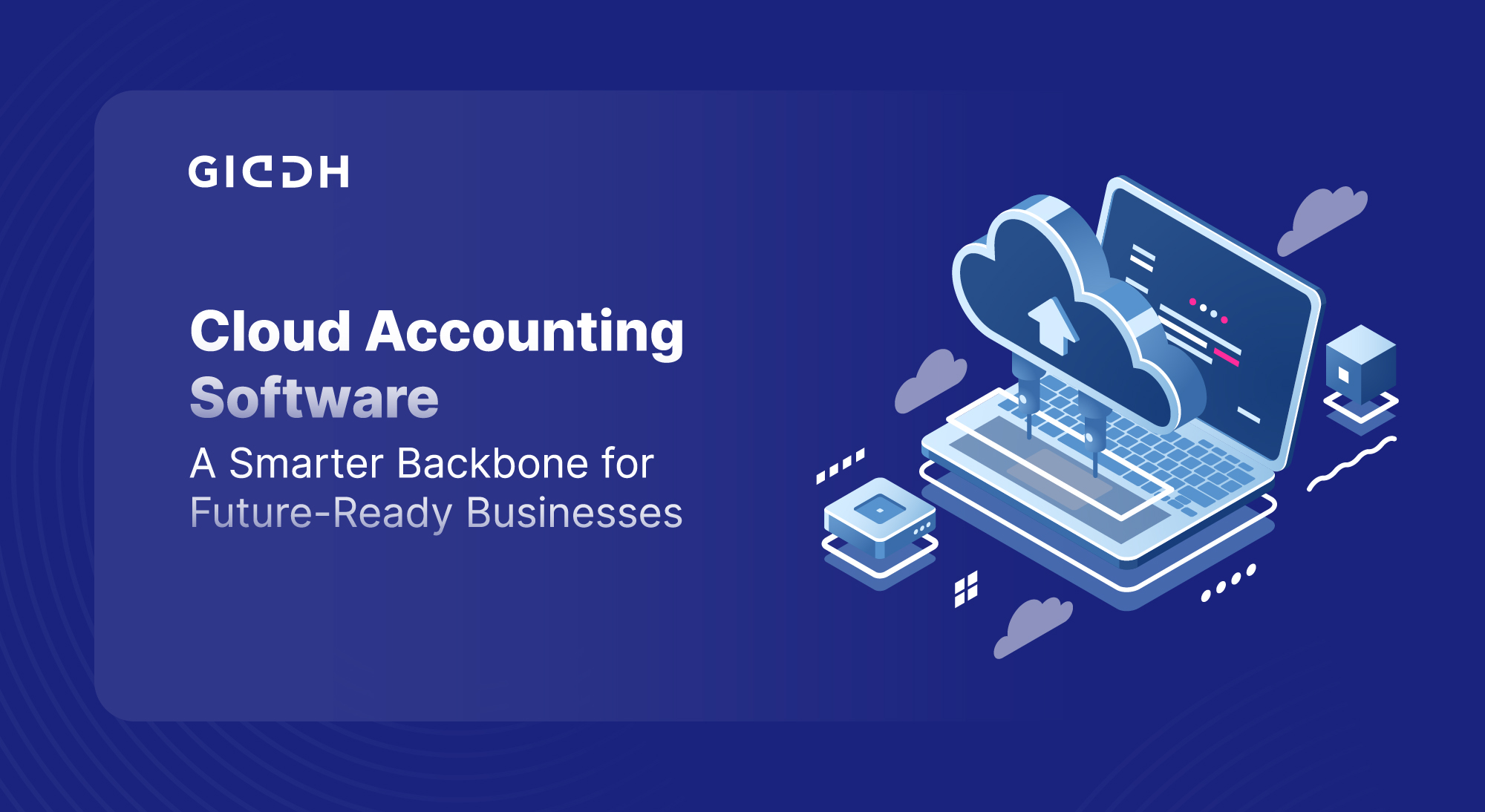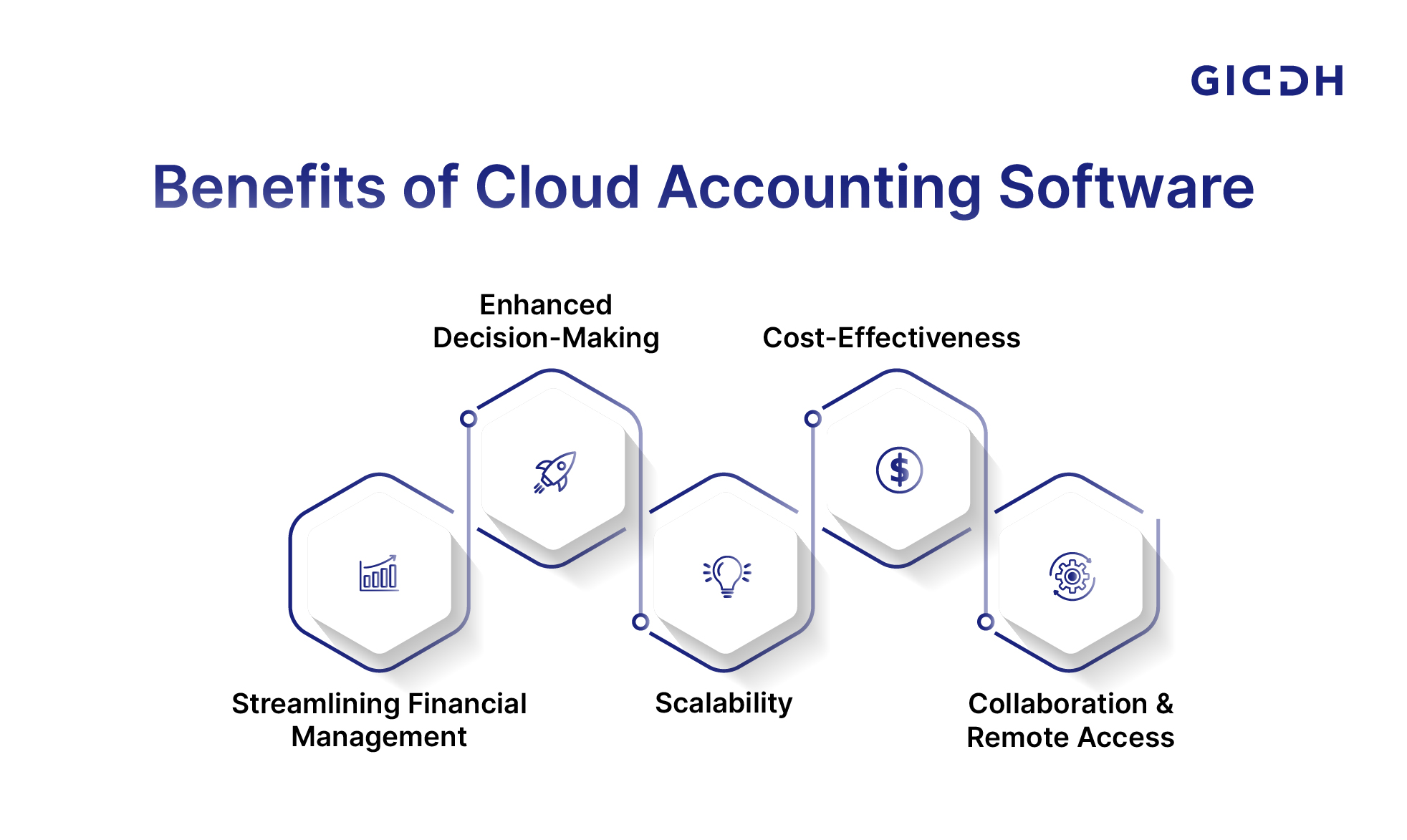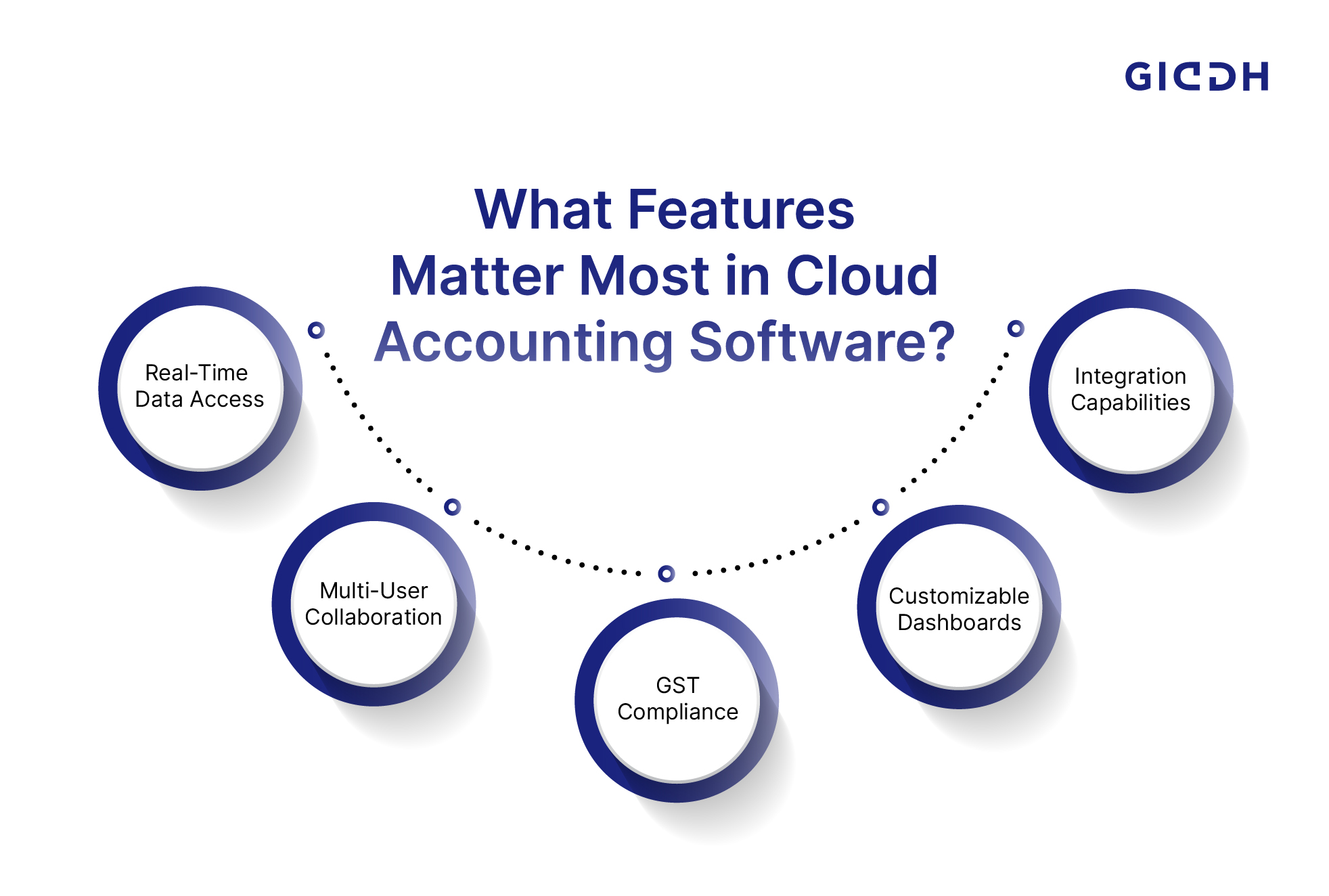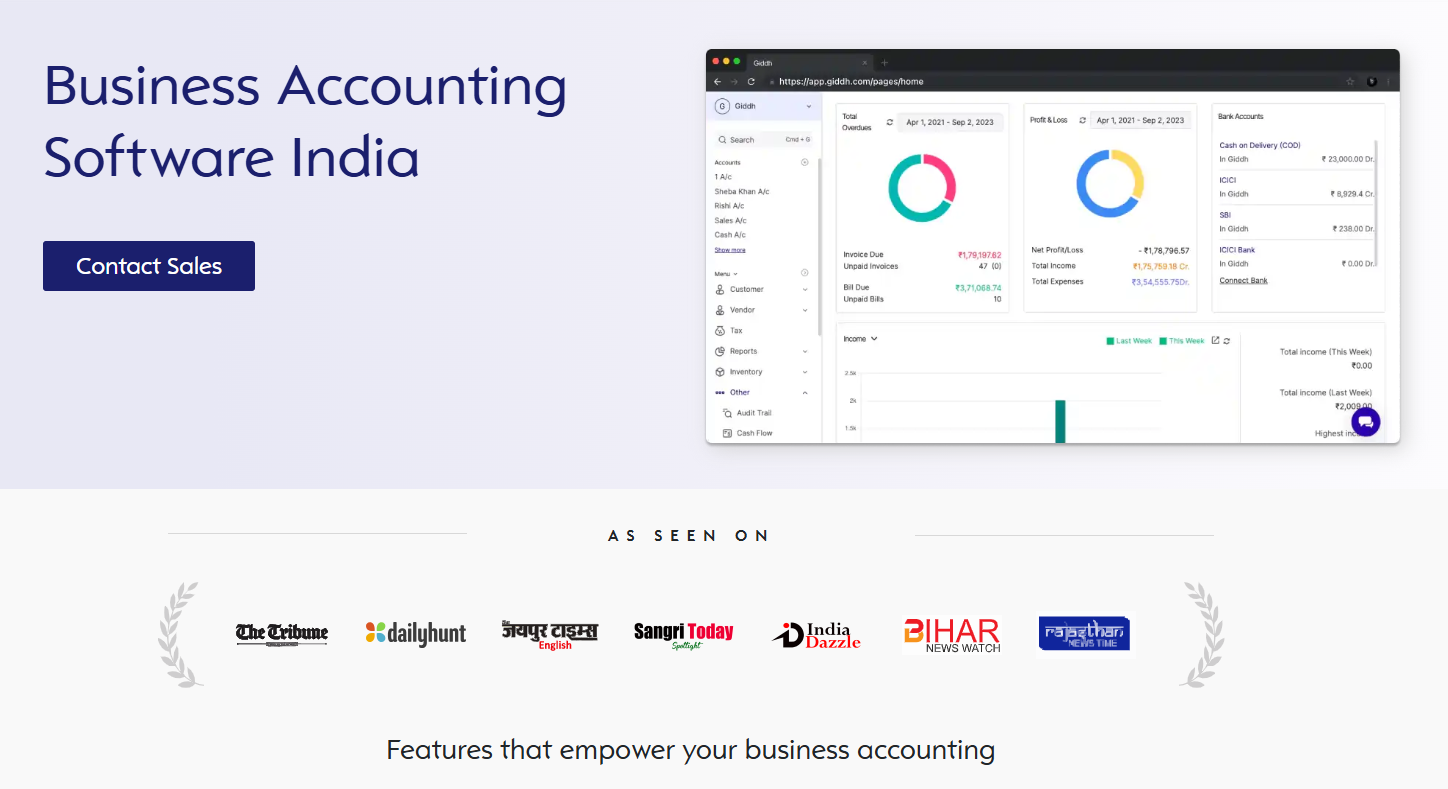How to Prepare Your Business for Future Growth with Cloud Accounting Software

As your business grows, managing finances can become more challenging. Traditional accounting methods may no longer meet the needs of a growing company.
Here, cloud accounting software comes in, offering a solution to help businesses manage their finances more effectively. With cloud-based tools, you can access all your data from anywhere, collaborate with your team in real time, and keep everything organized in one place.
This blog will explore how cloud accounting software can support your business in managing finances, improving efficiency, and preparing for future growth. Whether you're a small business or a startup, cloud accounting can help simplify your financial processes, making it easier to handle growth.
What is Cloud Accounting Software?
A cloud accounting solution allows agencies to manage their finances efficiently in real time. It will enable businesses to manage their finances over the internet, making financial data easily accessible from anywhere. It gives you access to your financial data anytime, anywhere, from any internet-connected device.
It is beneficial for teams that need to collaborate on accounting tasks without the need for physical meetings or constant email exchanges. Cloud accounting has become essential for modern businesses to manage finances more effectively.
Examples of Cloud Accounting Platforms:
- Giddh
- QuickBooks Online
- Xero
- Wave
- Zoho Books
5 Benefits of Cloud Accounting Software for Future Growth
These benefits help businesses prepare for future growth. From simplifying daily operations to offering real-time insights, here’s how cloud accounting can be a game-changer:

Streamlining Financial Management
This advanced cloud accounting software automates many of the manual processes involved in financial management. It includes invoicing, expense tracking, payroll, and tax calculations. Automation helps businesses to save time on administrative tasks by reducing human error and focusing more on core operations.
Cloud tools can also handle data entry and updates automatically, so everything is always up to date without the need for manual input.
Enhanced Decision-Making
Cloud accounting platforms provide real-time financial insights, allowing business owners and decision-makers to access up-to-date reports at any time. It will enable company owners to make better decisions based on accurate and up-to-date financial data.
Whether it's budgeting, forecasting, or spotting profitable opportunities, the insights are clear and actionable. With everything in one place, making quick adjustments to business strategies becomes much easier.
Scalability
As your business grows, cloud accounting software can grow with it. Whether you expand into new markets, add new team members, or offer additional services, cloud platforms can easily accommodate increased data volumes and users.
Cloud accounting software is mainly designed to be flexible, so you won’t have to worry about upgrading or replacing hardware as your business needs evolve.
Cost-Effectiveness
Cloud accounting software for small businesses operates on a subscription-based model, meaning there are no upfront costs for purchasing expensive hardware or software licenses.
Additionally, there’s no need for in-house IT support to maintain the system, reducing overhead and providing cost-effective accounting solutions. The subscription model ensures that businesses only pay for the features they need, making it an affordable choice for companies of all sizes.
Collaboration & Remote Access
Cloud accounting platforms allow multiple users to collaborate in real time, regardless of their location. All the company team members can access the system anytime, anywhere, with secure data storage and backup, making it easy to work remotely or collaborate with external accountants or financial advisors.
It increases efficiency, reduces delays, and ensures everyone has access to the same financial information.
Example for Indian Businesses: Consider a service-based business, such as an IT consultancy. With cloud accounting software, the firm can easily track its project-based income, expenses, and employee payroll.
Multiple team members can access the financial data at any time, whether they are in the office or working remotely, ensuring that everything from invoicing to tax reporting is up to date. It improves financial transparency and helps the consultancy scale its operations without the burden of manual accounting tasks.
How Cloud Accounting Improves Financial Accuracy and Transparency
Cloud accounting software improves the accuracy and transparency of financial data, which is crucial for informed decisions and business growth.
Here’s how it works:
Automated Reports:
Cloud accounting software automatically generates key financial reports. These reports are updated in real time, ensuring that business owners always have access to the most current financial data.
- Faster and more accurate report generation.
- Instant access to up-to-date financial data.
Error Reduction:
Manual accounting processes are prone to mistakes, such as data entry errors, incorrect tax calculations, or missed entries. Cloud accounting minimizes these errors by automating key tasks.
- Reduced need for manual data entry.
- More reliable financial data for better decision-making.
- Fewer mistakes lead to more dependable financial reports.
Data Security:
Cloud accounting platforms provide high levels of security for sensitive financial data. These systems use encryption, secure data storage, and backups to protect your business data from loss, theft, or unauthorized access.
- Data encryption ensures confidentiality and protection.
- Regular backups safeguard against accidental data loss.
- Secure access controls limit who can view and edit financial information.
What Are the Key Features of Cloud Accounting Software?
When selecting cloud accounting software, ensure it offers the features that meet your business needs and help improve efficiency. Here are some key features to consider:

Real-Time Data Access
- Access financial data instantly, no matter where you are.
- Make informed decisions based on real-time information.
- Keep track of important metrics like cash flow and payments without delays.
Multi-User Collaboration
- Allow multiple users to work on the same data simultaneously.
- Avoid version conflicts and data overlap by using a single platform.
- Facilitate collaboration between internal teams and external accountants.
GST Compliance
- Automatically updates to reflect the latest GST rates and regulations.
- Reduces the risk of tax-related errors and fines.
- Ensures timely and accurate GST filings without manual tracking.
Customizable Dashboards
- Tailor reports and views based on your specific business needs.
- Focus on metrics and performance indicators (KPIs) that matter most to you.
- Simplify complex data into easy-to-read visual dashboards for better clarity.
Integration Capabilities
- Integrates with other business tools like CRMs, payroll systems, and inventory management.
- Automates data flow between different systems, saving time and reducing errors.
- Streamlines financial data management with external software, improving overall efficiency.
Example for Indian Businesses:
Giddh offers these key features to Indian businesses, helping them manage finances more efficiently. With real-time data access, GST compliance, customizable dashboards, and multi-user collaboration.
Giddh makes financial management easy and accessible, with cloud accounting for startups in India. Additionally, Giddh integrates smoothly with other business tools, simplifying overall operations.
How Giddh Helps Indian SMEs Prepare for Growth
Giddh is an intuitive cloud accounting software tailored for small and medium-sized businesses in India. It offers powerful features that enable seamless growth and real-time insights without the hassle of traditional manual bookkeeping.
Key Features of Giddh:
-
Manage Over 100 Companies: Giddh is built to support businesses with complex structures, letting you manage up to 100 companies under one subscription.
-
Bank Reconciliation: Automatically reconcile your bank accounts with ease, ensuring all transactions are accurate and up to date.
-
Barcode: Improve inventory tracking and sales by integrating barcode functionality, making stock management more efficient and accurate.
-
Ledger-Based Accounting: Simplify your accounting with one-step ledger entries, ensuring accurate, real-time updates to your financial records.
-
Multi-Currency Support: Manage international transactions with ease, as Giddh supports multiple currencies, perfect for businesses with global customers or suppliers.
-
White-Label Option: Brand Giddh’s platform as your own with the white-label option, providing a seamless, branded experience for your clients or internal teams.
-
Unlimited User Access: Scale your business without worrying about limitations—Giddh allows unlimited users, so your entire team can access the system with customized permissions.
-
Bookkeeping Solutions: Get accurate and automated cloud bookkeeping solutions, ensuring your financial data is always up to date and helping you save time on manual entry.
With Giddh, Indian SMEs can streamline their financial processes, improve collaboration, and ensure compliance with GST, all while preparing for long-term growth.
What Are the Challenges of Adopting Cloud Accounting and How to Overcome Them?
Transitioning to cloud accounting software can bring many advantages, but there are a few hurdles businesses need to address. Here’s a look at the common challenges and ways to address them:
Initial Setup & Migration
Moving from traditional accounting methods to cloud-based solutions can raise concerns about data transfer, system setup, and ensuring smooth operations without interruptions.
- Break the setup into manageable steps.
- Utilise cloud platforms with intuitive migration tools to seamlessly transfer data.
- Seek support from the platform provider to assist during the migration process.
Security & Data Privacy
Storing financial data online brings concerns about security and privacy. Businesses in India need to make sure they meet local data protection laws.
- Choose platforms that offer strong data encryption and regular backups.
- Make sure the platform complies with India’s data protection regulations, including the Information Technology Act.
- You can implement access control to restrict who can view or edit sensitive data.
Training Employees
Employees may resist using new systems, especially if they are comfortable with older methods. Getting everyone on board and helping them understand the new system can be a challenge.
- Offer explicit training materials, such as video tutorials and manuals.
- Provide ongoing support through webinars or dedicated customer service teams.
- Introduce the software gradually so employees can get used to it step by step.
Example:
Giddh makes it easier for Indian businesses to transition to cloud accounting by offering comprehensive support. The platform provides step-by-step guidance for data migration, training resources for employees, and ensures compliance with local regulations. Giddh’s easy-to-use features help businesses confidently move their financial data to the cloud.
Conclusion
Cloud accounting software helps businesses manage their finances better by getting real-time insights, simplifying financial management, and ensuring compliance with local regulations. Cloud accounting platforms like Giddh provide the support needed for businesses to make informed decisions and maintain financial health.
With features like multi-user collaboration and customizable dashboards, businesses can work efficiently and collaboratively, regardless of their size. If you’re looking to streamline your accounting processes and prepare your business for future growth, it’s time to consider making the switch to cloud accounting.
Start your journey with Giddh today with a free trial and take control of your financial operations.


